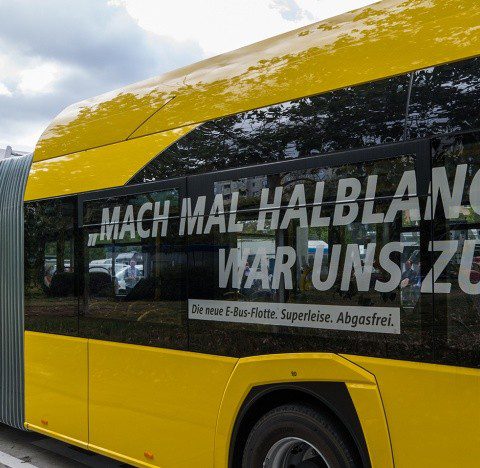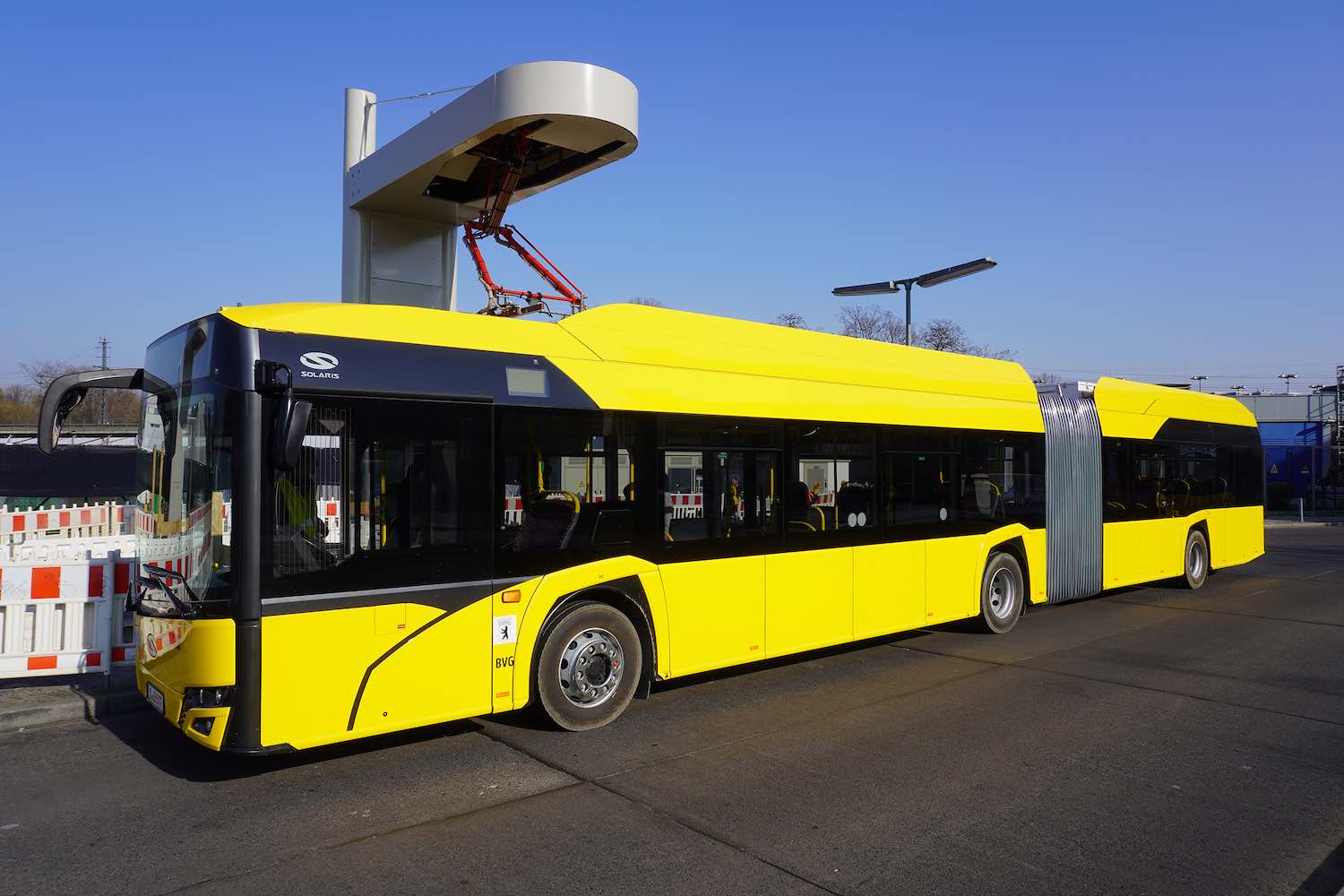BVG Berlin rolls out the first articulated e-bus of its history
BVG Berlin ‘christens’ the E-MetroBus project with the debut on the road of the first full electric articulated bus. The novelty occurred on 27th August 2020. A total of 17 Solaris Urbino 18 electric vehicles are now gradually taking over operation on Line 200, BVG points out. Electric articulated buses for the first time in Berlin […]

BVG Berlin ‘christens’ the E-MetroBus project with the debut on the road of the first full electric articulated bus. The novelty occurred on 27th August 2020. A total of 17 Solaris Urbino 18 electric vehicles are now gradually taking over operation on Line 200, BVG points out.

Electric articulated buses for the first time in Berlin
The new articulated e-buses by Solaris can carry 99 passengers. For the first time in Berlin, the new buses will be loaded at the terminal stops within a few minutes by pantograph, giving them an unlimited range during operation. The quick-charging columns required for this were supplied by Siemens. Two each were put into operation at the Michelangelostraße and Hertzallee bus stops, one was installed at the depot in Indira-Gandhi-Straße.
BVG has joined forces with the Technical University of Berlin and the Reiner Lemoine Institute in a research consortium for the “E-MetroBus” project. As part of the project, the Technical University of Berlin is developing, for example, an E-bus guidance system with better range prognosis, is investigating the energy-efficient use of heating and air-conditioning systems and the environmental balance of the buses, BVG highlights.
The Reiner Lemoine Institute is conducting research in various scenarios on how to implement a local, network-based supply of charging stations at bus stops and depots. It has also developed an app that allows passengers to calculate the carbon footprint of their journey and find further information on the topic of e-buses and sustainable mobility.
The total investment volume amounts to around 16.7 million euros. BVG will cover the costs that would have been incurred for comparable diesel buses. Within the framework of the Electromobility Directive, the E-MetroBus project is funded by the Federal Ministry of Transport and Digital Infrastructure with a total of 4.3 million euros. The remaining additional costs will be borne by the Land Berlin.
Federal Minister of Transport Andreas Scheuer commented: “Public transport buses cover thousands of kilometres in German cities every day. And the more e-buses are operating in Berlin, the cleaner the air for people. Since the buses can now be charged quickly, the range is no longer a problem. I very much hope that many transport companies will take BVG as an example when converting their fleets”.
A fully electric bus fleet by 2030
Regine Günther, Senator for the Environment, Transport and Climate Protection: “With the e-articulated buses we are driving climate protection in Berlin forward. We will show that even long buses can drive cleanly and in a climate-friendly way – as already tested and common in other countries. The largest bus fleet in Germany is to be completely fossil-free in ten years. I am pleased that Berlin is setting standards here to decarbonise transport effectively”.
Dr. Rolf Erfurt, BVG board member for operations: “Now that we have successfully integrated 67 electrically driven vehicles into regular service, we are taking the next step with this project. Around half of our vehicles are articulated buses, which is why we are eager to test the electrically driven version. On the highly frequented Line 200, the vehicle and charging infrastructure can prove that they are up to the demands of a large city”.







